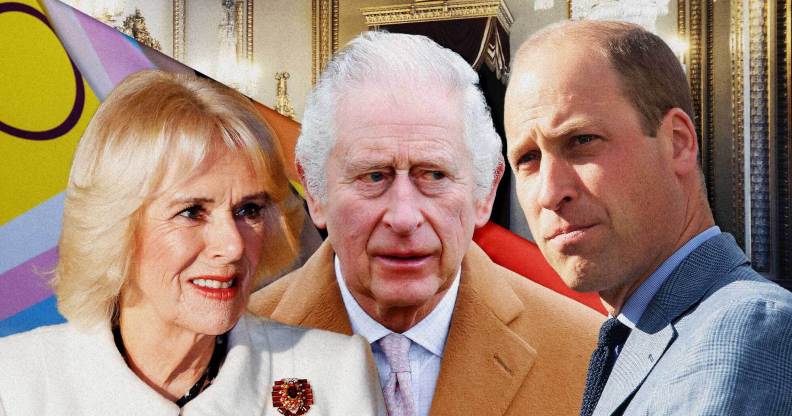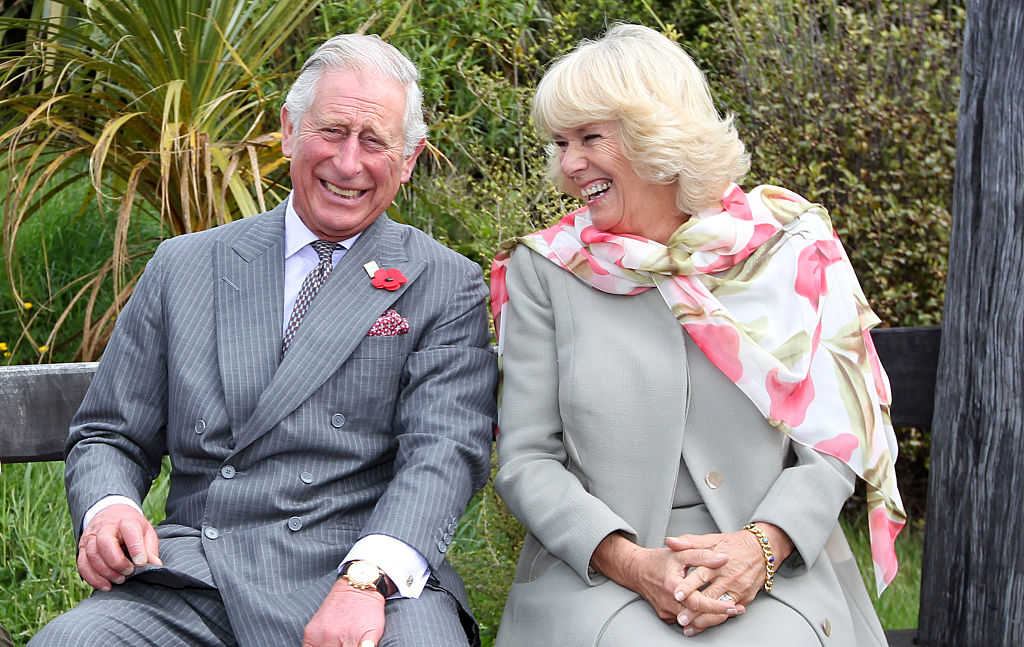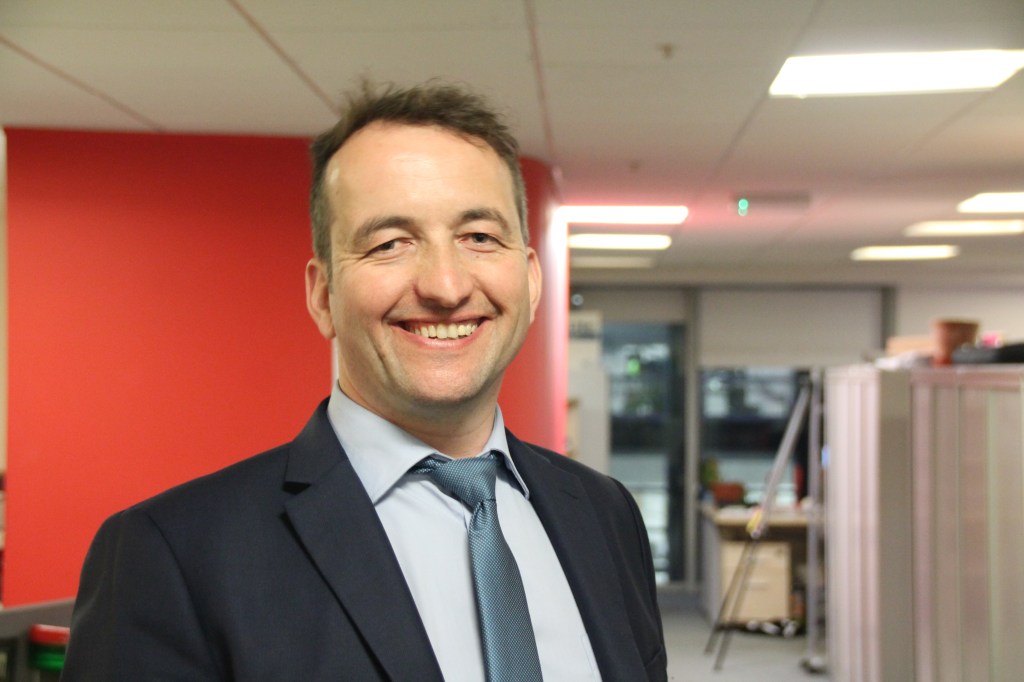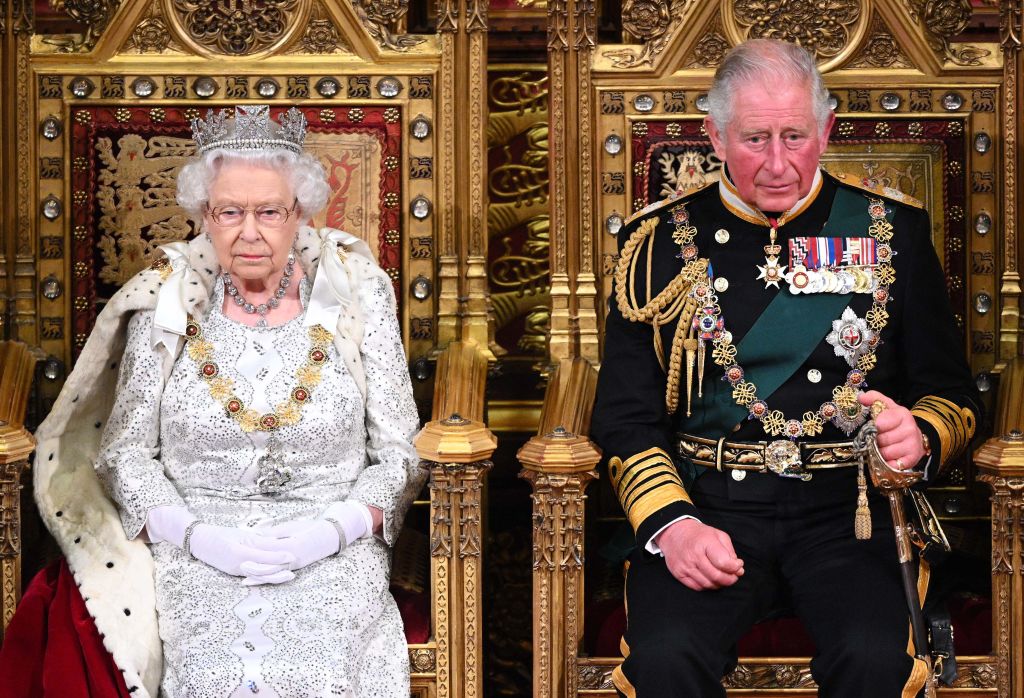Abolishing the monarchy is the only way to tackle royal family’s anti-LGBTQ+ legacy, says Republic

After the death of Queen Elizabeth II, the accession of King Charles III, and Prince Harry’s troubling testimonies against the institution, the royal family’s future feels less viable than ever.
Graham Smith is CEO of Republic, a campaign group that wants to absolish the monarchy. There are countless reasons why – mostly to do with the fact that having a royal family goes against every democratic principle in the book.
But Smith also wants LGBTQ+ people to consider the monarchy’s legacy on queer rights. He believes the royals don’t care about LGBTQ+ people.
“The monarchy is steeped in very deeply conservative attitudes,” Smith tells PinkNews.
“The monarch is the head of the Church of England, and just a few months ago the Archbishop of Canterbury said gay sex is still a sin, which is an appalling thing to say. That then emboldens people to support things like conversion therapy.
“It’s a pretty toxic institution in my view… I think we are stuck with a deeply conservative head of state and family in a country which is increasingly open-minded and liberal.”

There’s no record of the King ever speaking publicly on LGBTQ+ rights. Prince William, the new Prince of Wales and heir to the throne, has bucked the trend and spoken broadly in support of LGBTQ+ people. He said in 2019 he would be “absolutely fine” if his children were to come out as gay or lesbian.
But Smith is concerned by the royals’ silence on homophobic laws in Commonwealth – the group of nations that sprung out of the former British Empire, headed up by the King and previously the late Queen.
Most of its member states criminalise LGBTQ+ people under laws that were imposed under British colonialism.
If silence is collusion, I think they’ve got a lot of questions to answer.
Graham Smith, CEO of Republic
“Given that record you might have hoped that the British head of state and the head of the Commonwealth might have said something about it, but the Queen never said anything about it, nor has Charles. And as far as I’m aware, nor has William,” Smith says.
“If silence is collusion, I think they’ve got a lot of questions to answer as to why they’ve taken no interest in LGBT issues when it can be pretty life and death in so many parts of the Commonwealth.”

Royals’ response to racism allegations ‘speaks volumes’
There’s also the issue of racism to consider. Much was made of Prince Harry and Meghan Markle’s assertion that a member of the royal family speculated about the colour of their unborn child’s skin.
That alleged incident, the response to it from the royal family, “speaks volumes” about their “detachment from the rest of society”, Smith says.
“It’s almost like they’re trying to teach themselves about basic standards of decency and how to talk to people and how to talk about people out there in the open.
“You would think that we would have people who already understand these things and know how to conduct themselves and understand the nuances of racism and homophobia and all the rest.”

A gay monarch couldn’t pass the throne to their children, Smith says
Smith also points out that nothing has been done to change “homophobic” succession laws which ensure that, if a member of the royal family ever had a child outside of a heterosexual marriage, they wouldn’t be placed in the line of succession.
While the 2013 Succession to the Crown Bill removed gender discrimination from succession laws, nothing was done to ensure children born to a same-sex royal couple could accede to the throne. A House of Lords debate at the time clarified that it was understood only a child born to a husband and wife could be placed in the line of succession.

When the issue was raised, members expressed their view that it was outside the scope of the bill and therefore not worth considering. Because nothing on the issue was included in the 2013 bill, Smith believes the law would still prevent a gay monarch from marrying and having children who would then be placed in the line of succession.
“It does just underline and underscore that whole deeply conservative Church of England attitude which is deeply at odds with how most of us think,” he adds.
Republic is organising protests to coincide with King Charles’ coronation in May, calling for the abolition of the monarchy. While he hopes the current focus on the royals makes people see that the monarchy is not fit for purpose, he also wants people to take the issue seriously.
“This is not an institution that has your interests at heart, it is not an institution that is interested in you at all. It’s not a soap opera, it’s not about the tabloid headlines. It is a serious issue and it needs to be addressed on that basis.”
He continues: “Essentially, we don’t have to put up with this circus. It is unprincipled, it is bad for Britain, bad for our democracy. The coronation is an opportunity to stand up and protest against it and getting rid of it is absolutely achievable. “
“We don’t have to put up with Charles, we can actually have a choice.”

